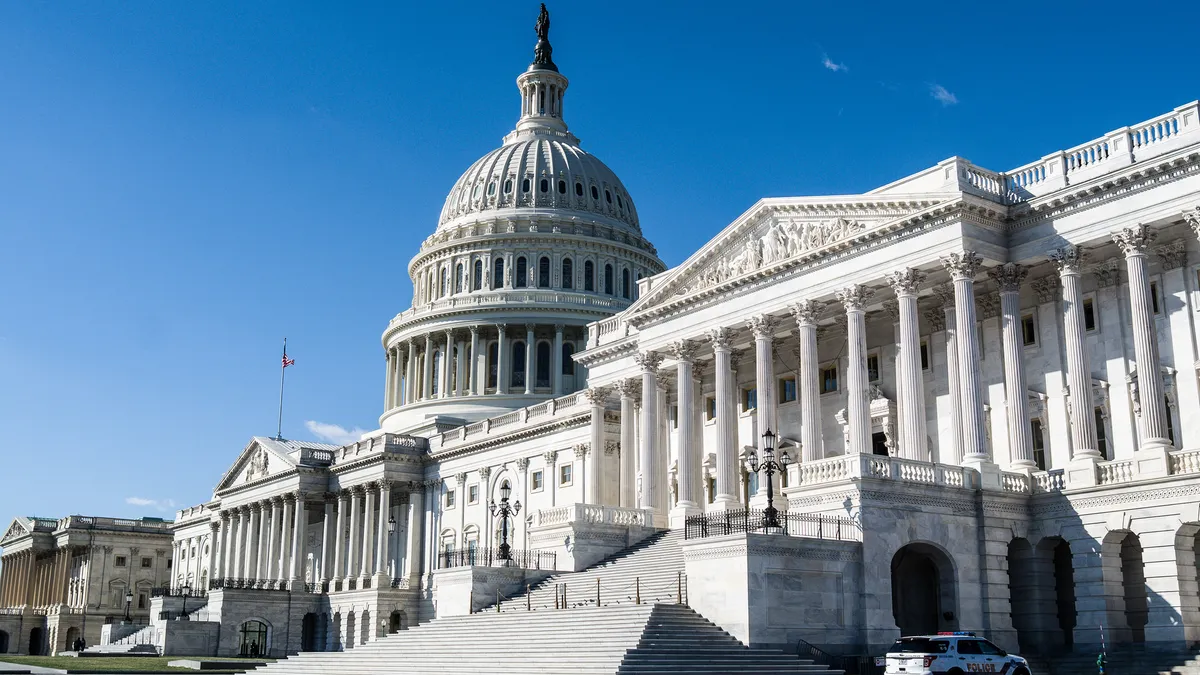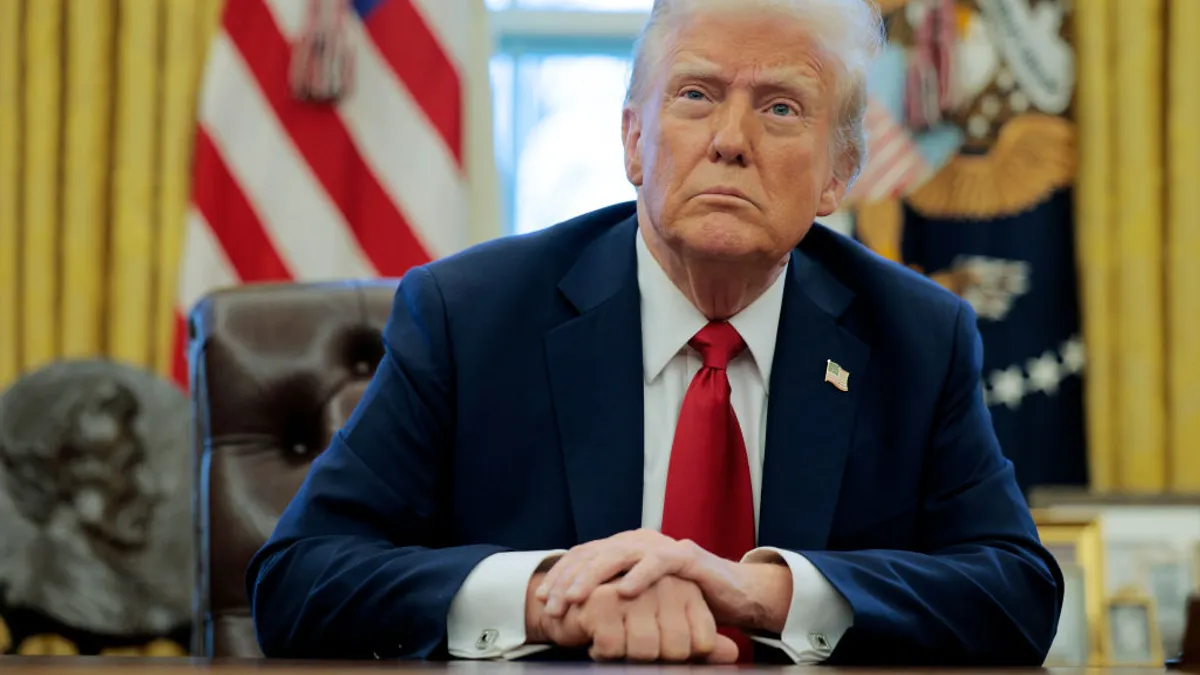Dive Brief:
- The U.S. Department of Education plans its first effort to expand access to free, open digital textbooks and materials for colleges nationwide with a $5 million federal appropriate, The Washington Post reports. The money will support development or expansion of open peer-reviewed academic materials under an intellectual property license that allows free use. A recent study by the Babson Survey Research Group showed that the share of college instructors using open educational resources (OER) grew from 5 percent in the 2015-2016 academic year to 9 percent the next academic year.
- Intended as a grant program for campuses to submit ideas for expanded digital textbook access, Ed Department officials said that the public commenting period remains open, and that a formal pilot will be introduced this summer with a goal of funding projects with the greatest cost-savings potential. The cost of printed textbooks has grown by 65% in recent years, creating a financial burden for many students.
- Many colleges and universities are adopting open-source materials — either as campus-wide initiatives or through departments or individual instructors. Colorado and Georgia are two states with digital textbook programs for their public institutions, and state lawmakers in Hawaii are considering an amended bill that encourages the use of OER instead of mandating them.
Dive Insight:
Higher education is a frequent talking point target of political candidates during election cycles, and increasing affordability is a primary subject for much of the dialog surrounding how and why candidates should earn votes. But colleges may suffer from the nuances of dialog that is broadly intended to create better circumstances for students.
For example, in the effort to secure digital textbooks offerings, colleges have to consider the costs of securing copyright licenses, developing a strategy for how certain licensed textbooks can be integrated into curriculum, and make sure that instructional design effectively complements the digital learning materials. It is not a good look for students to have a digital textbook for a traditional course using traditional teaching methods that recent studies' suggest disintegrates student engagement.
If colleges can work with elected officials, publishing companies and faculty members to develop proper rollout strategies for digital textbook initiatives, the results can be powerful for affordability, access and keeping students on track toward degree attainment.








